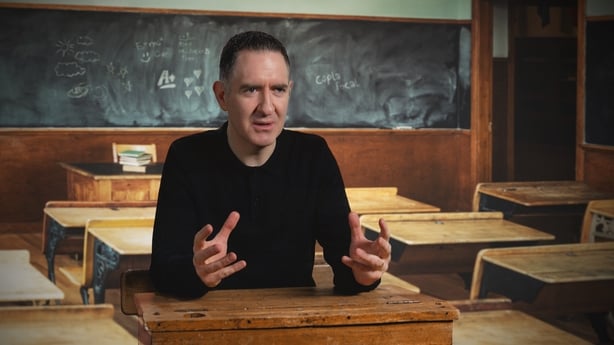RTÉ Radio One Drivetime presenter and one of this year's Ambassador for Seachtain na Gaeilge considers the best bits of learning and using Irish, from identity to empathy.
It happened in a post office on the quays in Dublin.
'Go back to yer own country!'
Clearly frustrated, at the back of a slow-moving queue, he took aim at two people (I wasn’t one of them!) chatting in a ‘different’ language near the top of the queue. They were chatting ‘as Gaeilge’!
I think most people in the line smiled.
Language is a funny old thing. As an ‘ambasadóir’ for Seachtain na Gaeilge, I was asked to write about what the language means to me. So here are some really brief observations.
It’s personal. It’s inherently part of my identity. The same as a person’s ethnicity or skin colour or any other deeply personal characteristic. If our experiences shape us as people, our language shapes those experiences.

It’s old! The Irish language is thousands of years old. I’m immensely proud – and feel incredibly privileged – to be a native Irish speaker. I’m but a singular link in a chain of relationships that is thousands of years old. It was passed on to me by my mother, who received it from her parents before her and so on throughout the generations…for millennia. It is based on close relationships and thrives in community. Individuals. Families. Communities. A nation. Sharing experiences for thousands of years. And it’s uniquely ours.
Viewing life from a minority language perspective can enrich your view of society and understanding fo the world. From an early age, you learn that people in the same community may have different words for the same thing – door, doras; tree, crann; friend, cara. This can be profoundly beneficial -people are different! How beneficial it is to a child to understand this from an early age. Learning about difference brings you along the road to respecting difference and a diverse society.
As a broadcaster, it has definitely helped my understanding of various stories.The roles culture, identity and language play in various stories worldwide is often central. See the invasion of Ukraine, for example. Generally, identity politics can be fraught and sensitive. Linguistically, being dominant and domineering are different. Also, context is important. You can have a minority language like Gaeilge in Ireland and a minority language like German in Denmark. We’ve become more aware in recent years of biodiversity. Linguistic diversity is as sensitive and complex a terrain.
I mentioned earlier that the language thrives in community. Which is why successive governments since the foundation of the state – including the current government- have supported Gaeltacht communities and the language. We’re currently in the middle of the 20 year strategy on the Irish language. But how that strategy succeeds may well decide the fortunes of Irish as a living, breathing, community, every-day language.
And finally let me reach for my inner Deepak Chopra! Apart from all of the above, , from an individual’s point of view, learning a language is like a pop-psychology checklist of wellbeing! Wait for it:you learn something new, it’s good for cognitive development and neuroplasticity; taps you into a new community and gets you in touch with people, increasing your social circle; it makes you embrace vulnerability – starting a sentence and not knowing if you’ll be able to finish it can be terrifying. You just have to laugh it off!
Apologies to Deepak.
So I invite you to try a little Gaeilge during Seachtain na Gaeilge! Agus bain sult as!


